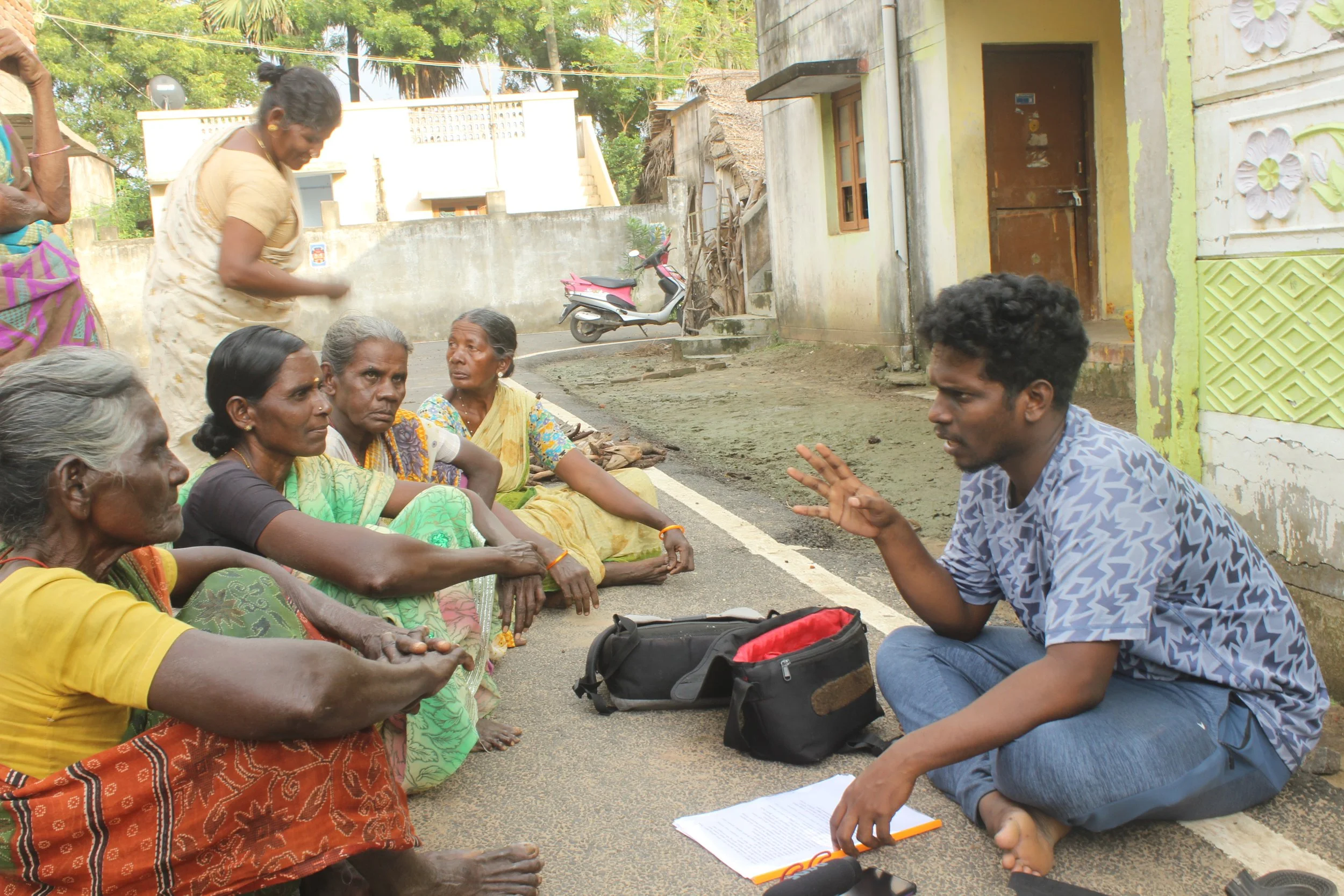Inlaks Shivdasani Fellow for Social Engagement: Vardini MS
Vardini MS is a 2022-24 Inlaks Fellow pursuing the Inlaks Shivdasani Fellowship for Social Engagement. Her work involves conducting participatory research on the socio-economic status of the nomadic tribal community Boom Boom Maatukarars in Tamil Nadu to create a census database and publish a report on their marginalization that aids them in obtaining government benefits and entitlements.
We spoke with her to know more about her ongoing fellowship and her plans going forward.
Could you tell us a bit about the focus area of your work?
My work is focused on bringing out the histories and struggles of people from nomadic tribal communities in Tamil Nadu. I am currently focusing on the Boom Boom Maatukarar tribe, who are a traditionally nomadic performing tribe. They travelled along with their decorated bulls and predicted the future of people for a living. They got food, pulses and money in return for their services. With the advent of modernism, government initiated settlements, loss of cattle and due to the stigma attached to them as criminals due to the colonial law, Criminal Tribes Act 1871, they lost their livelihood and have taken up begging, rag picking and petty vending for their source of income.
Being a small community, the Boom Boom Maatukarars were not listed as criminal tribes and the colonial government didn’t focus on them much, leaving them out of history and hence they have not been included in the list of caste and tribes of India. This has led to them not receiving any welfare measures from the government.
My goal is to shed light on their history, way of life, past struggles, and current issues, highlighting their exclusion from official records and government welfare measures.
You recently led the research team in the publishing of a report on the Status of Nomadic Tribes in Tamil Nadu. Could you tell us what you hope to achieve through this?
There has been no research or data on the nomadic tribes of Tamil Nadu by the government or academic institutions. The Vanavil Trust, along with knowledge organization Praxis, which works to influence equity and governance-related policies, researchers’ collective ROSA and TENT society, that works exclusively for the development of nomadic tribes in Tamil Nadu, initiated a participatory research on the status of nomadic tribes in Tamil Nadu. The goal of the research was to initiate a conversation on the topic, to take the problems to the notice of the government and for the general public to understand the status of their fellow citizens.
We have made significant progress in making the government notice the problems. The government has now initiated a census on nomadic tribes in Tamil Nadu. We also wanted the universities to take up research on nomadic tribes as an academic interest and we have two institutions who have asked us to collaborate with them to work on the research on marginalised communities in Tamil Nadu.
We believe the academic discourse and the action by the government in terms of welfare measures and policy changes will help in the upliftment and betterment of the nomadic tribal communities in Tamil Nadu.
Could you tell us a bit about your work studying oral histories and ethnographies of the communities through visits to the Boom Boom Mattukkara settlements?
Listening to the stories and understanding how the small community has survived over all these years is extremely interesting and fascinating for me personally. The people from the community are great storytellers and have preserved their history through stories and oral traditions. So far, I have found the first settlement of Boom Boom Maatuakarars in a land gifted to them by a landed individual and I am trying to find their origins through their stories, understand the social structures within their communities and their functions, their traditions, etc. I am also documenting the contemporary issues faced by the community and their struggle to attain their basic rights as citizens of our country. I will be writing articles on five themes to bring out the history and struggles of this community.
What have been the greatest challenges you have faced through the course of your research?
The challenges in my research have been multifaceted, including the historical neglect of these communities, the impact of government policies, and the struggle to bring attention to their issues.
What are the key achievements of your work so far?
Key achievements include progress in making the government aware of these problems, initiating a census, and fostering collaboration with academic institutions for further research.
Tell us about your goals for the near future? How do you plan on incorporating what you have learnt into your work ahead?
In the near future, I aim to continue my work in collaboration with universities, institutions and people from nomadic tribal communities, contributing to research on nomadic communities in Tamil Nadu. I plan to incorporate the insights gained from oral histories and ethnographies into my ongoing efforts, furthering the conversation on nomadic tribal communities and advocating for their upliftment.
To know more about the Fellowship, visit our website here.









